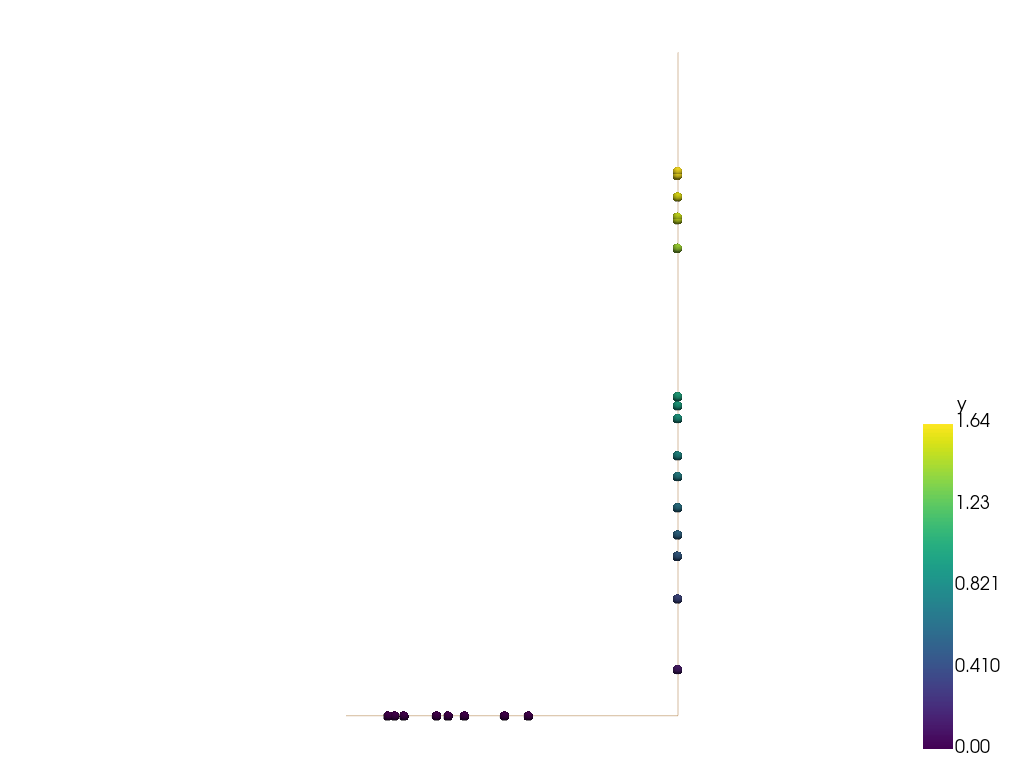pyransame.random_line_dataset#
- pyransame.random_line_dataset(mesh: DataSet, n: int = 1, weights: str | _SupportsArray[dtype[Any]] | _NestedSequence[_SupportsArray[dtype[Any]]] | bool | int | float | complex | bytes | _NestedSequence[bool | int | float | complex | str | bytes] | None = None) PolyData#
Generate random points on lines with sampled data.
Supported cell types:
Line
Polyline
All cells must be convex.
- Parameters:
- meshpyvista.DataSet
The mesh for which to generate random points. Must have cells.
- nint, default: 1
Number of random points to generate.
- weightsstr, or array_like, optional
Weights to use for probability of choosing points inside each cell.
If a
stris supplied, it will use the existing cell data onmesh.
- Returns:
- pointspv.PolyData
(n, 3)points that exist inside cells onmeshand with sampled data.
Examples
>>> import pyransame >>> import pyvista as pv >>> p = [ ... [0., 0., 0.], ... [1., 0., 0.], ... [1., 2., 0.] ... ] >>> mesh = pv.PolyData(p, lines=[2, 0, 1, 2, 1, 2]) >>> mesh['y'] = mesh.points[:, 1] >>> points = pyransame.random_line_dataset(mesh, n=25)
Now plot result.
>>> pl = pv.Plotter() >>> _ = pl.add_mesh(mesh, color='tan') >>> _ = pl.add_points( ... points, ... scalars='y', ... render_points_as_spheres=True, ... point_size=10.0, ... scalar_bar_args={"vertical": True} ... ) >>> pl.view_xy() >>> pl.show()
